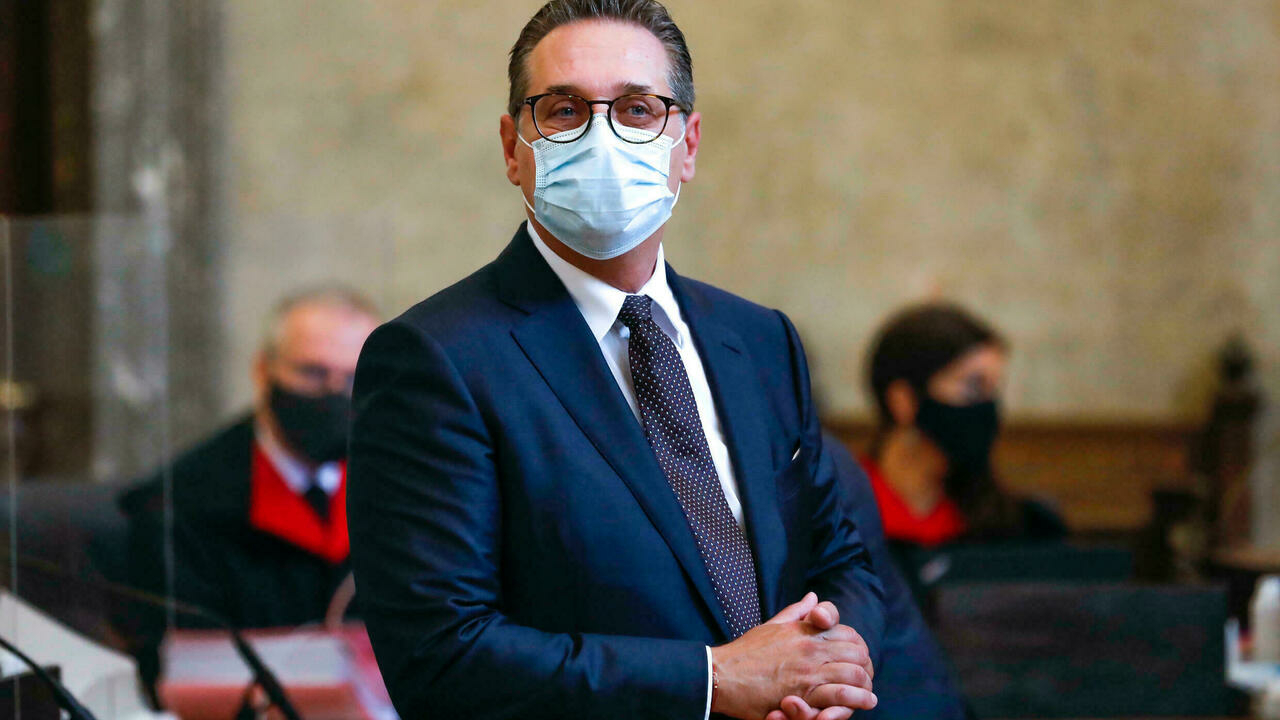
The former Austrian vice chancellor was given a 15-month suspended jail sentence.
A Vienna court convicted the former leader of Austria’s far-right Heinz-Christian Strache of a corruption charge on Friday in a case stemming from a 2019 scandal known as “Ibizagate”.
Advertising Read more
Strache, one of Europe’s most high-profile former far-right leaders, was given a 15-month suspended jail sentence.
The Ibizagate scandal led to Strache resigning as vice-chancellor and head of the far-right Freedom Party (FPOe).
The affair brought down the coalition between the FPOe and the centre-right People’s Party (OeVP) of Chancellor Sebastian Kurz and triggered fresh elections in the Alpine EU member.
The scandal broke when video footage emerged of Strache promising public contracts to a woman posing as a Russian oligarch’s niece in exchange for support for the FPOe’s 2017 election campaign.
The video, which was secretly filmed on the Spanish resort island of Ibiza, led to a sprawling investigation by anti-corruption prosecutors who turned up several other allegations of wrongdoing against Strache and other prominent politicians.
Acquitted on second charge
In the current trial the 52-year-old Strache was found guilty of helping change a law to help an FPOe donor friend of his to secure public funding for his private hospital.
Strache’s co-accused Walter Grubmueller, a long-standing friend and owner of a private health clinic, was also found guilty and given a 12-month suspended sentence.
Judge Claudia Moravec-Loidolt said Strache had been acquitted of a second charge of receiving favours in the form of a trip to the Greek island of Corfu at Grubmueller’s invitation.
Strache had protested his innocence throughout the trial.
Prosecutor Bernhard Weratschnig said in his closing argument that holders of public office should remain above even the perception of corruption and that the “advantages” Strache received were “indisputable”.
“Every euro is one euro too many,” he said.
According to an SMS exchange uncovered by prosecutors, Strache had asked Grubmueller which amendments to legislation would be needed in order for Grubmueller’s clinic “to finally be treated in a fair manner”.
During Strache’s time in government, the law was amended to enable clinics like that of Grubmueller to receive money from the public health insurance fund.
Strache has also been accused of embezzling party funds to pay for his luxurious lifestyle during the 14 years he headed the FPOe, though he has not been charged over this.
Kurz returned to the chancellorship after the scandal, this time at the head of a coalition between his OeVP and the Greens, and has thus far managed to avoid any serious political damage from “Ibizagate”.
The OeVP was even able to gain many disaffected FPOe voters in 2019 polls.
But in May, prosecutors announced they were investigating the 35-year-old on suspicion of giving false testimony to a committee of lawmakers probing “Ibizagate” and other graft allegations.
Kurz has denied the allegation and has insisted he will not bow to pressure to resign, even if formally charged.
Party infighting
The FPOe’s vote share crashed from 26 percent in 2017 to just 16 percent in 2019.
The party has spent much of the time since the scandal consumed by infighting.
In June, Strache’s successor as leader, Norbert Hofer, resigned after weeks of tension with party colleague and former interior minister Herbert Kickl.
Kickl, seen as a party ideologue and mastermind of some of its anti-Islam and anti-migrant campaigns, took over as leader.
Meanwhile, Strache attempted a political comeback last year with a bid to be Vienna’s mayor, but his list won just three percent of the vote in municipal elections.
(AFP)
Daily newsletterReceive essential international news every morning Subscribe








